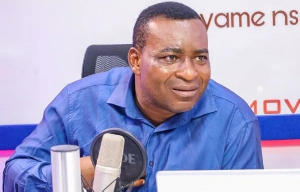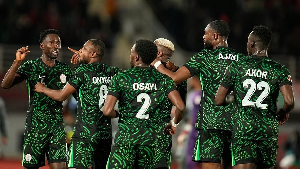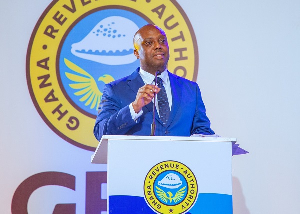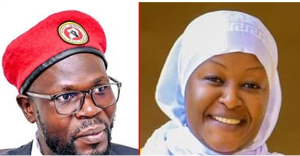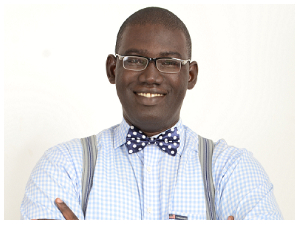Accomplishing but still embattled: The Parable of Mahama’s Presidency
By Guure Brown Guure
When John Dramani Mahama ascended the presidential throne on that dreadful day of 27th July 2012, the national mood was understandably a sombre one. Ghana had, for the first time, lost a sitting president. The new president, and by extension, the nation could not celebrate the hurriedly convened swearing in ceremony.
Fast forward 9th December 2012, the mood was however, of renewed hope and energy when the Chairman of the Electoral Commission Dr Afari Gyan declared Mahama as the president elect of the republic. Most Ghanaians yearned for a reduction in partisan bitterness and for united efforts to ensure a better Ghana for all.
How different things are in 2015: In what economists might refer to as the cascading effect, inflation is rising, unemployment is on the increase, the Cedi has declined significantly against the major currencies, cost of living is rising, taxes are increasing, utility bills are on the rise and worst still, the lights are hardly turned on now a days.
Certainly, the combined effect of these have dissipated the enthusiasm that greeted Mahama when he stepped out of his official residence at Cantonments on the night of the 9th December 2012 to merrily say “I accept the declaration and verdict of the Electoral Commission with humility and will like to commend all Ghanaians for the confidence they have reposed in me.”
Waning enthusiasm for a president during a national crisis is hardly surprising, though. President George Bush Jnr. went on to win a clear and incontrovertible victory over John Kerry in 2004 after coming under intense public criticism, with the lowest presidential approval rating ever, to match- following the Iraq war of 2003. Yes, there is currently an overwhelming sense of despair brought about by the long protracted energy crisis. Everyone is thus yearning for a quick fix out of this unbearable situation.
Sadly, no one, not even our good old Nana Addo can short-circuit the dry Akosombo Dam to rise or the broken thermal plants at Aboadze- Takoradi, else there would not have been a similar experience of load shedding in Nana Addo’s time as either the Attorney General or Minister of Foreign Affairs. It was not striking to some of us that the then so-called visionary NPP government did not find it expedient to fix Ghana’s energy supply problems permanently but only managed it with what was termed as ‘toy’ generators by none other than their own senior expert in the energy business.
What is striking however, is the disconnect between assessments of Mahama and his actual record—a President who has, in fact, accomplished significant movement toward his transformative goals in the face of fierce political headwinds, and inherited mounting national difficulties as well as effects of a global economic melt-down – not to mention a protracted court case that consumed significant portion of his first term.
Many, especially in the opposition, are of the mistaken belief that the energy problem is now the new found panacea (after Woyomegate failed them in 2012) to a Nana Addo’s presidency. Ironically, the energy crisis- the ‘fixing’ of it- might just turn out to be president Mahama’s best-selling point. Ghanaians could in the long run appreciate the president’s resolve and sense of stoicism in staying put and solving, perhaps, Ghana’s most challenging crisis in the face of what could be classified as the most vituperative attacks on a sitting president.
To a seasoned observer, the blazing opposition to Mahama from the NPP fits a pattern of partisan polarisation deepening since the return to constitutional rule in 1993 and recapitulates the all-out resistance faced by President Liman in the 1980s, when he, like Mahama, came to office amidst disdain and downright envy. After all, per the NPP’s political demographics, a Northerner should not be the president of Ghana because, as they put it, “90 percent of Ghana’s natural resources are largely found in Akan-speaking regions” and so, the president should necessarily be an Akan. President Mahama, fortunately (for him) is a pepeni- the electorates’ favourite.
Evidently, the unending and scathing opposition by the NPP is suggestive of a group not willing to accept the legitimacy of a Northern presidency. They engage in hyperbolic attacks and attribute corruption proclivities to a Presi¬dent who, in practice, is rewinding the corruption clock.
Never in the history of Ghana has any president caused for as many intensive investigations into corruption related issues in his government like this president, though he had all the resources at his disposal to go the ‘typical’ African way i.e instruct the security and investigative agencies to sweep the rot as deep as possible under a woollen carpet. The rot at the National Service Scheme, for example, has gone on for decades but neither Kufuor nor Mills had the courage to nib it in the bud. It took a courageous Mahama to sanction a probe and consequently save millions of tax payers’ money. I need not remind Ghanaians that he did this without throwing a challenge at the citizens to prove the perception of corruption with concrete occurrences as was the case in the past.
Strong critiques of Mahama are not confined to his most determined Danquah-Busiah traditionalist’s illusionary falsehoods. Indeed, many in the ruling NDC see Mahama's presidency as a profound disappointment too. In fact, we have all criticized the president, from not decisively dealing with people cited in issues of corruption to not booting out perceived non-performing heads of MDAs.
This notwithstanding, Mahama's actual record in office is at odds with reactions to his presidency. A cursory look around us confirms that the President has actually fulfilled and is addressing most of the promises he made during the 2012 campaign.
He promised to complete implementation of the SSSS (Single Spine), which he has; he promised to revamp the Komender sugar factory, which he has done; he promised to kick start TOR, which he has done; he promised to end the energy crisis, which he is working to fulfil by the end of his first term; he promised 200 SHS which is underway; he promised to extend electricity to every nuke and crony in the country, which is almost done, he promised a three tier overpass at the Kwame Nkrumah circle to ease congestion, which is underway; he promised to cut waste and clean the public sector payroll, which he’s doing; he promised a state-of-the- art hospital facility at the Ridge Hospital, which is underway and the list goes on and on.
Shortfalls in Mahama’s efforts, such as the decline of the cedi or the high cost of living, are largely attributable to the crisis he has faced and the fierceness of political opposition, including the loss of a one whole year through a needless election petition.
Any thorough and realistic assessment of President Mahama's achieve¬ments and failures must go beyond a focus on his personality and tribal belonging- as some unfortunately do. Relevant questions must be posed: What happens when a president takes office amidst a gathering economic storm, brought about by a past “team B” that he cannot publicly condemn and tries to turn things amidst the muddy seas of political clamouring and non-stop lobbying? Can any ambitious presidential initiative make headway overnight in an acute, economic crisis brought about by a political standoff?
I do not have the answers but in some ways, it is premature to try to answer such questions and draw conclusions. Mahama may end up having two terms in which to firm up his record in the Flagstaff House, and whether he is ousted in 2016 or not, only the fullness of time and the longer perspective of history will allow final answers. Even in the event of a loss, Mahama might prove to have set in motion policy shifts that will end up shaping twenty-first-century Ghana: shifts such as the removal of subsidies on public goods and services, investment in our energy mix etc. In a sense, grappling with big questions is a much better way in which to probe Mahama's ambitious presidency than by posing simple-minded oppositions of “success” versus “failure”.
Incoming Presidents around the globe always enjoy some honeymoon period- albeit at varying degrees of tenure, but Mamaha’s honeymoon, if any, was very brief, and the fledgling Mahama administration soon found itself grappling with multiple, intractable national crises in the face of a desperate opposition.
True, the euphoria that accompanied Mahama's original election and inauguration is long gone. However, as we inch closer to election 2016, no one should underestimate the president as he undertakes to fight for his transformational agenda. He understands the high stakes in 2016 and will not bring a toy to a “gun battle”.
Mahama, by every indication, will fight with eloquence and determination to preserve the accomplishments of his presidency, as he asks Ghanaian voters to renew his mandate for four more years- come December, 2016.
Before then, let us all support the president succeed.
The author is a Communication Specialist
Email: smart.brown@gmail.com
Opinions of Friday, 15 May 2015
Columnist: Guure, Brown


